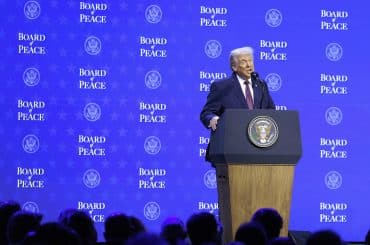Last night I caught Charlie Rose talking to Peter Balakian, translator of the book, Armenian Golgotha by his great uncle Grigoris Balakian, which describes the Armenian genocide of the 19-teens. Balakian said more than 1 million Armenians were "exterminated." Then he echoed Obama and said that until the Turks come to terms with what they did 100 years ago, they will never move forward as a modern democracy that respects minority rights.
Of course I thought about the Nakba of 1948, and the Israeli refusal to acknowledge it. And along with that the oppression of a minority that permeates Israeli society–lately in this amazing report of a one-year-old expelled from a day-care center because she is Arab.
But I also thought about Theodor Herzl on the Armenian issue. Herzl’s diary demonstrates that indifference to an indigenous Asian minority is in the DNA of Zionism.
In 1896, Herzl made a trip to Constantinople to try and meet Sultan Abdul Hamid so as to negotiate the purchase of Palestine, which was then part of the Ottoman Empire. Herzl was prepared to offer millions of pounds to resolve the Turkish debt crisis, and get a Jewish state in exchange. The Sultan declined to meet with him (they met a couple years later) but his aides gave Herzl some terms. Could he work on the Armenian issue in the European press? Turkey was getting bashed for its treatment of the Armenians. And Herzl, who always bragged that his pen was not for sale, agreed to do so.
I’m not going to go through all Herzl’s work on behalf of the Turks on the Armenian issue now. This is a blogpost, not a scholarly article. But in seeking to "pacify" the Armenians, Herzl visited an Armenian revolutionary in his London apartment, Nazarbek (evidently the poet Avetis Nazarbekian). Herzl:
The house is noisy, second-rate, middle-class elegance, and from time to time wild Armenian faces appear in the crack of the door. They are refugees who find shelter here.
[Herzl then meets Nazarbek] Black, tangled, serpentine locks, black beard, pale face. He mistrusts the Sultan and would like to have guarantees before he submits. His political ideas are confused, his acquaintance with the European situation downright childish…it seems, his word is obeyed by the poor people in Armenia who are being massacred. He lives in London, not uncomfortably. I asked whether he knew who was finally benefitting from all this unrest, Russia or England?
He replied that he did not care; he was revolting only againt the Turks.
The woman [Nazarbek’s wife] kept interrupting us, speaking in Armenian and evidently against me. She has a wicked look; and who knows how much she is to blame for the bloodshed…
I promised I would try to get the Sultan to stop the massacres and new arrests, as a token of his good will…
I offer this not as the final word on the Jewish-Armenian relationship. I don’t know much about it. Though right in line with Herzl, Abe Foxman took the Turks’ side recently, during the flap over recognition of the Armenian genocide.
I offer it chiefly as light on the Israel lobby and its methods. Herzl was playing the Great Game of world politics. He was a genius at it. Thus his concern with Russian and English interests. He didn’t seek a mass movement at first; he sought the help of Jewish bankers and editors in his effort to parley with the Sultan of the Ottoman Empire for a colonial chunk of the empire. Herzl didn’t want to be a court Jew– no, he wanted to be a statesman for the Jews, and god bless him– but he operated in the courts of Europe, not always successfully. And as I have said before, I bet I would have been a Zionist back then.
Face to face with a man representing oppressed indigenous Asians who faced genocidal forces in their society, Herzl was contemptuous. And that Jewish history is still with us. Cultivating the powerful, using financial influence, expressing contempt for an indigenous Asian people–these traits have been hallmarks of the Israel lobby. I say history because it’s coming to an end. There are other ways of being Jewish in modern society.


THE BRITISH AMBASSADOR TO THE OTTOMAN EMPIRE SIR GERALD LOWTHER’S LETTER TO SIR CHARLES HARDING, May 29, 1910: — “Shortly after the revolution in July 1908, it soon became known that many of the Young Turks’ leading members were Freemasons. It was noticed that Jews of all colours, native and foreign, were enthusiastic supporters of the new dispensation, till, as many Turks expressed it, every Hebrew became a potential spy of the Young Turks. Turks began to remark that the movement was rather a Jewish than a Turkish Revolution. — Now, the Zionist Young Turks who sought for the break up of the Ottoman Empire in order to obtain Palestine–and the House of Rothschild, who needed a Jewish-controlled Turkey and hegemony over the entire Middle East, could work together. This meant funding for the Jewish Young Turks and revolutionary subversives for the Rothschilds.” — Brother Nathanael Kapner